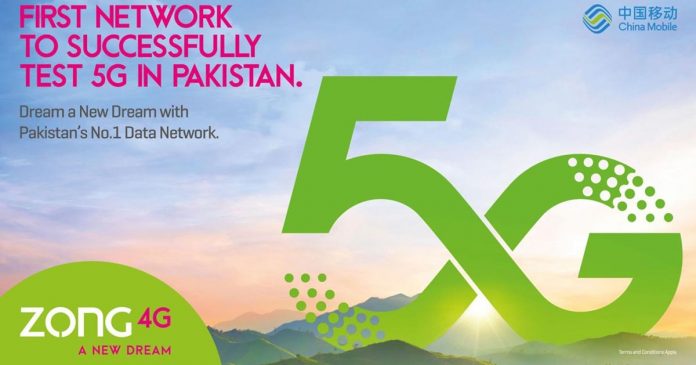ISLAMABAD, April 5 : With China Mobile Communication Corporation’s CMPak (Zong) as one of the major broadband players, broadband subscriptions in Pakistan have reached a historic 100 million mark, Gwadar Pro reported on Monday.
According to Pakistan Telecommunication Authority (PTA), the historic 100 million mark has been achieved owing to supportive government policies, effective competition among telecom operators and PTA’s commitment to introduce and utilize innovative technologies.
“All four national Cellular Mobile Operators (CMOs), SCO and fixed line broadband operators including PTCL collectively have broadband subscriptions of over 100 million now,” according to PTA.
China Mobile owns CMPak, which operates under Zong 4G in Pakistan, and is the fastest growing cellular mobile operator in Pakistan. According to the PTA official website, CMPak (Zong) enjoys 22.6% cellular market share in Pakistan.
Market share of all four national cellular mobile operations in Pakistan. [PTA Website].
The CMPak is a 100% owned subsidiary of China Mobile Communications Corporation that came to Pakistan in 2007.
Being young of all four national Cellular Mobile Operators (CMOs), Zong has shown exponential growth to attract a large number of users within a short period of time.
Currently, CMPak engages in the provision of cellular mobile voice and data services to the Pakistani market through 2G, 3G and 4G technologies.
The number of broadband users in Pakistan has grown rapidly since 2012 when the country had less than two million subscriptions, but after the introduction of 3G services, the figure jumped to 16 million in 2014 and a grand 100 million in 2021.
“Today 87% of the country’s population has access to internet/broadband services at one of the lowest rates in the region,” according to the PTA statement.
According to the authority, broadband is provided over 3G/4G networks with an average download speed of 17.7 Mbps and upload speed of 11.3 Mbps (mobile), which is above the speed levels in other regional countries.
The mobile data prices declined to only 0.70% of the Gross National Income (GNI) per capita, which is well below the UN Broadband Commission’s recommendation of less than two percent.

















